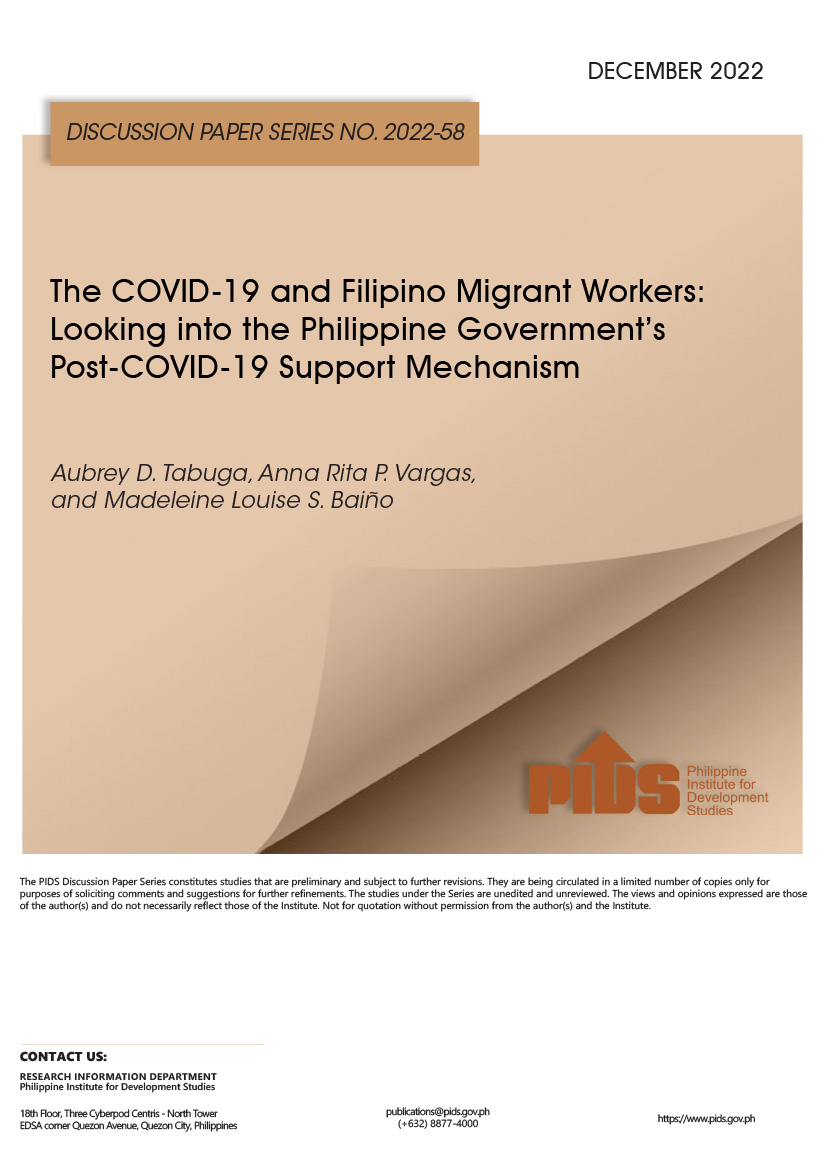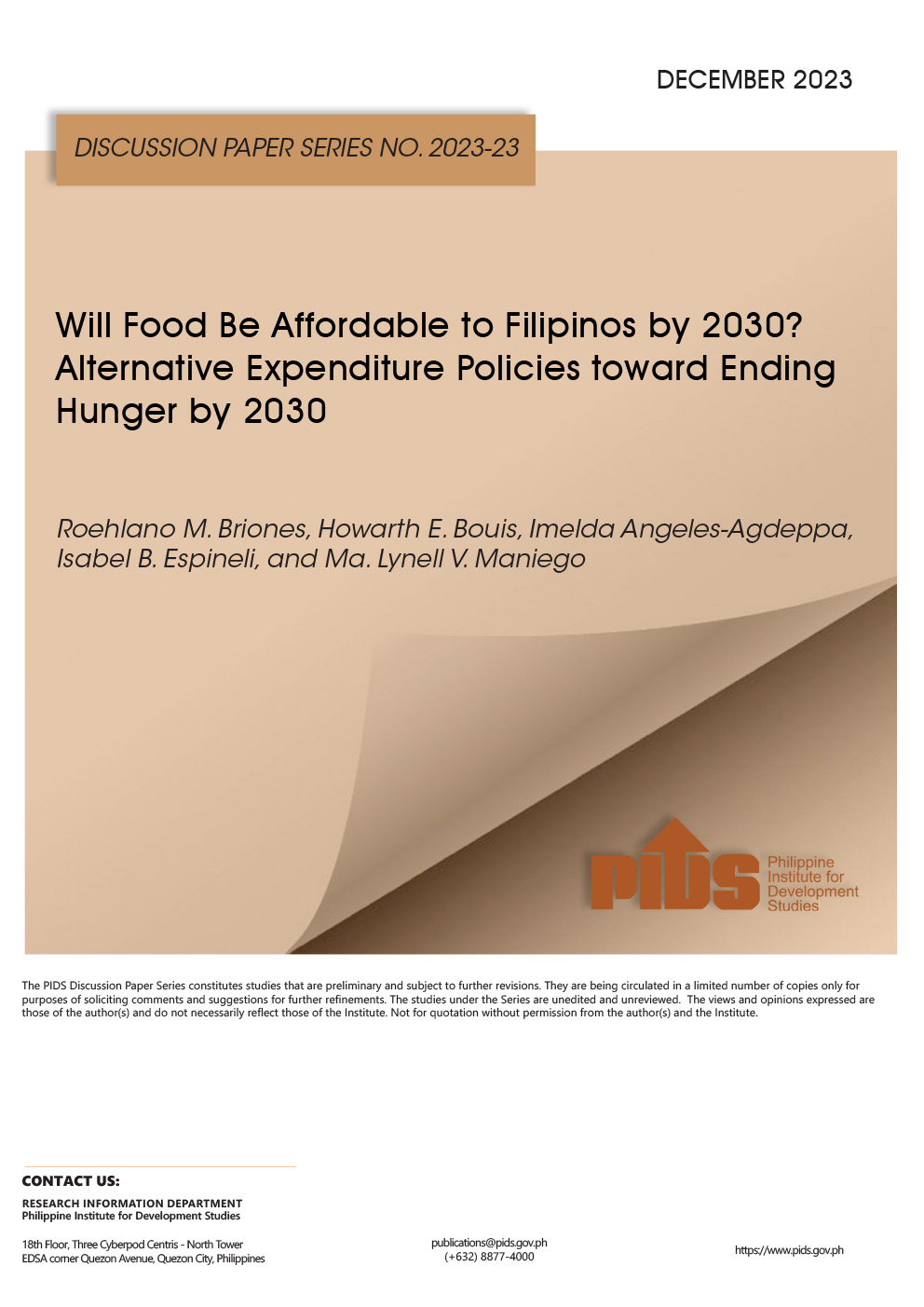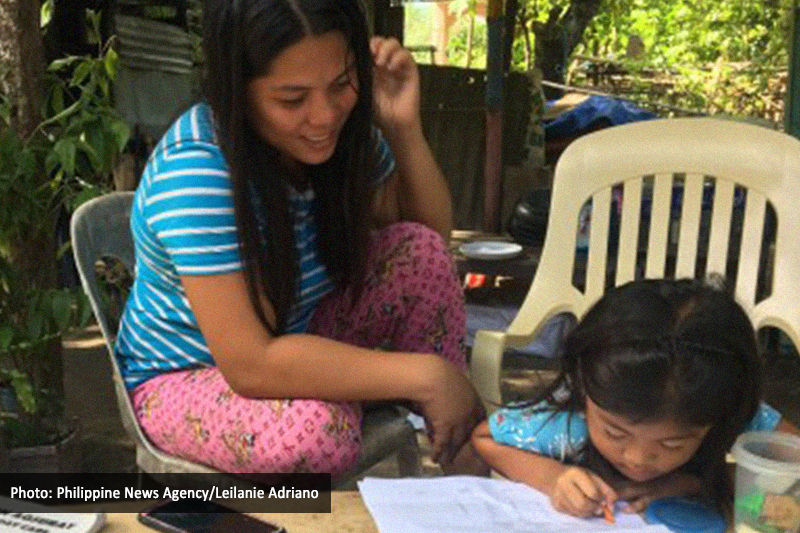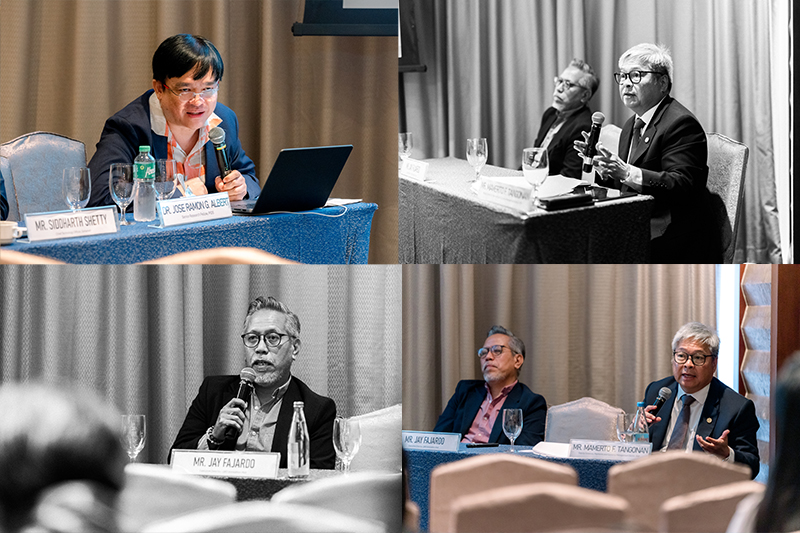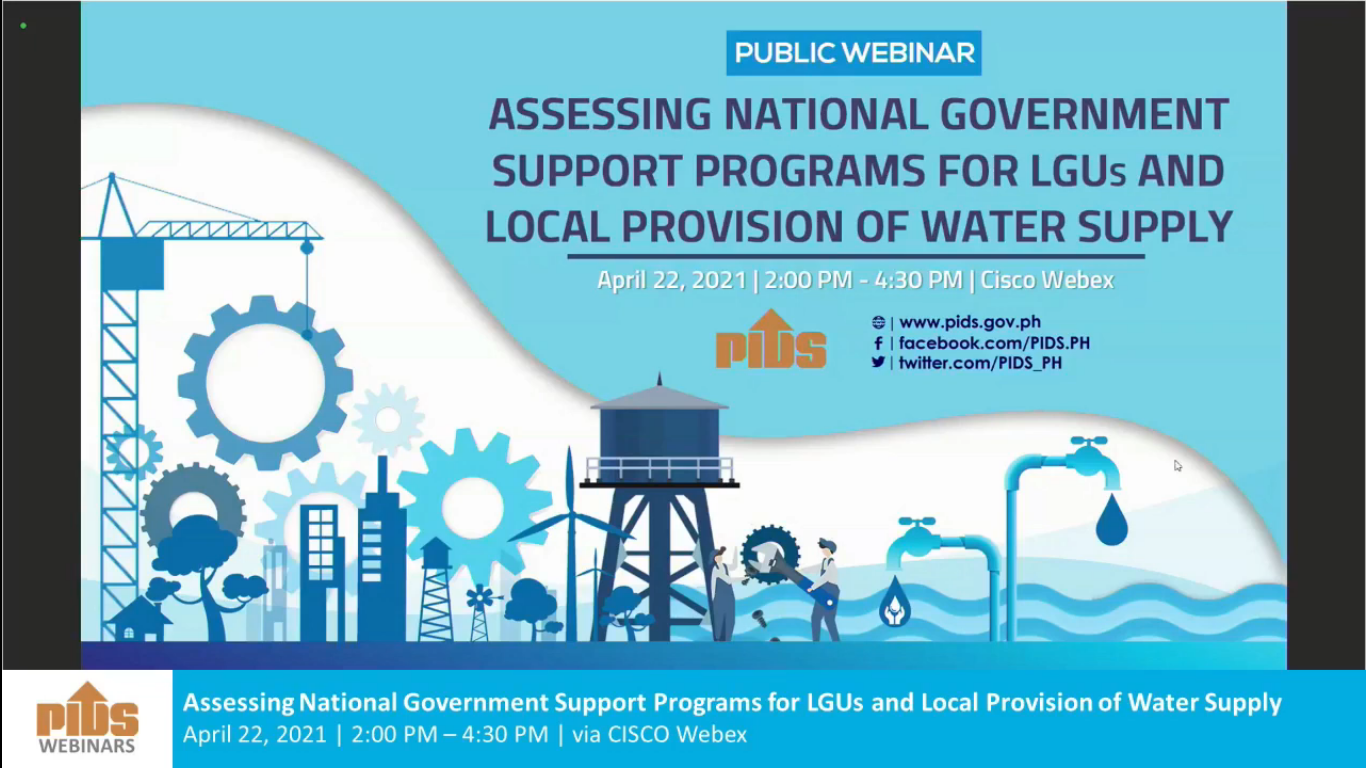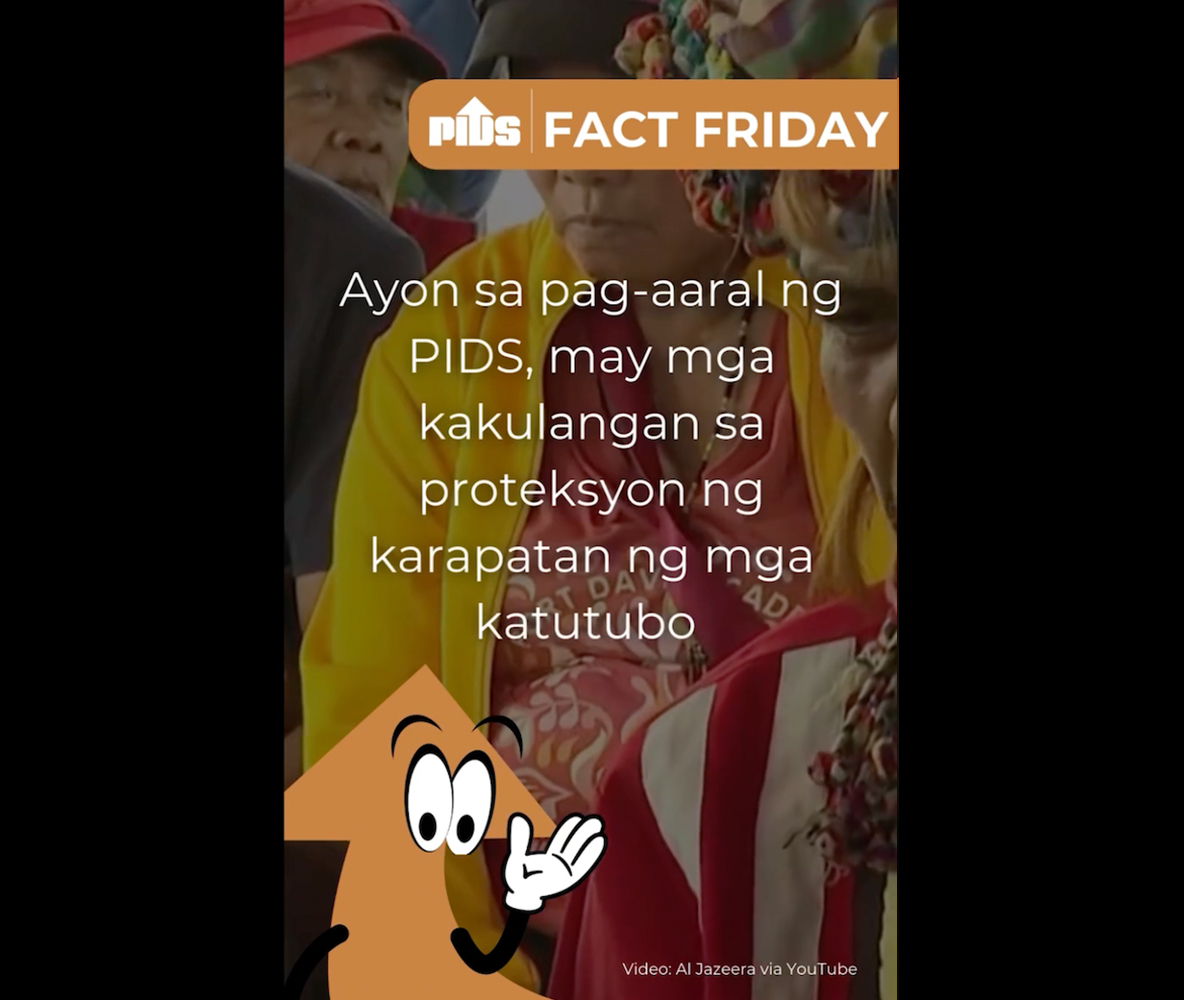State-run People's Television Network carried the political party's event on government-run channels.
This is a misleading claim that lacks context.
What he said: "The Liberals were funded by the oligarchs. The PDP is the only one that isn't... Us here in Mindanao, we were also bullied in Davao in the past. We were able to experience our houses being demolished," he said in a mix of English and Bisaya.
"That's why the gravitation is ano... it's really towards the middle-class. Basically, PDP is middle-class. The rich ones... those Liberals that time... you know the big... you know who they are... they were funded by the oligarchs."
He made the claim as he argued that PDP-Laban was made up of "true Mindanaoan leaders in search of the greener pastures of life" as he attempted to strike a contrast between prominent figures in the LP.
"You know the Liberal [Party], they were funded by the oligarchs...but the PDP is really for the enlightened leaders...In every election, who is supported by the Razons? Who is supported by [Ramon Ang]? In PDP-Laban, there is no such money trail in the financial matters of our candidates."
What he left out: Even during his campaign, Duterte liked to claim that his run for the highest post in the land was funded by "Emilio Aguinaldo."
According to his spokesperson at the time, Aguinaldo was supposed to represent ordinary Filipinos who were hungry for change funding his campaign.
In December 2016, Duterte acknowledged that Ang contributed to his campaign.
"You know very well that nobody really campaigned for me, or at least some… And a few people who believed in me. Si Ramon Ang gave me some money. Hindi malaki, hindi rin maliit (Not big, not small). But enough to finance one trip here, one trip there," reports by the Inquirer and by Rappler quote him as saying.
A report by the Philippine Center for Investigative Journalism on the Statement of Contributions and Expenditures that Duterte filed after the elections also sheds some light on the claim.
The second-highest donor was Alan Peter Cayetano, Duterte's running mate who also has four relatives holding elected positions in government. After his win, Duterte appointed Cayetano to head the Department of Foreign Affairs.
The president later endorsed a term-sharing deal for the speakership, which saw Cayetano leading the House of Representatives until October 2020, when his colleagues elected Rep. Lord Allan Velasco (Marinduque) as speaker.
Another donor was Davao-based tycoon Dennis Uy, who eventually ranked 22nd on the list of wealthiest Filipinos in 2019. Uy, a known friend of Duterte, has expanded his businesses since the 2016 elections.
Finance Secretary Carlos Dominguez III, head of the finance committee of Duterte’s presidential campaign, also donated P3 million to the cause.
All in all, 13 donors who contributed at least P5 million to the Duterte campaign constituted some 89% of the total fund.
A CNN Philippines report in 2020 cites a study by Rep. Joey Salceda — chair of the House Ways and Means committee and vice-chair of the chamber's economic affairs panel — that defined the middle class as households that earn "between P25,000 and P150,000, respectively in 2020 prices."
A 2018 Philippine Institute for Development Studies study defined the middle class as "those belonging to the middle-income class are families (or persons belonging to families) that have incomes between 2 and 12 times the poverty line."
"In 2017, a family of five would thus be middle income if its monthly income ranged roughly between P20,000 and P115,000."
Even as there is no exact definition for who is in the middle class, it is also unclear who or what an oligarch is.
In a 2016 ABS-CBN report on oligarchies, Dr. Ronald Mendoza, dean of the Ateneo School of Government pointed out that not all wealthy people are engaged in oligarchic behavior.
"If their wealth is based on getting government contracts in an unfair way or undertaking illegal activities such as not paying taxes correctly, behaving in an anti-competitive way, I think these are among the behaviors of modern oligarchs."
Essential context: The president, who likes to portray himself as a tough-talking man of the people, has long made it clear that he has an ax to grind with the nation's oligarchs — a term of Russian origin for the elites who run the government.
Duterte's rhetoric against the oligarchs has been a constant throughout his administration, although he has thanked the private sector for its help during the COVID-19 pandemic.
When a House committee junked the franchise application of ABS-CBN in July 2020, for instance, administration allies hailed the move as one that "[reclaimed] patrimony from the oligarchs."
Days after ABS-CBN's shutdown, Duterte in a speech delivered to the military claimed he successfully unseated the small circle of elites sitting atop the Philippine economy.
Why does this matter?: While the president claims to have removed the oligarchy, activists and academics alike have accused Duterte of "creating his own breed of cronies."
A briefer written by members of the faculty of the Ateneo de Manila Department of Political Science argued that oligarchs cannot end oligarchies, saying the president is "simply making some oligarchs more powerful than other oligarchs."
"A clear indication of an oligarchic system is the prevalence of political dynasties in Philippine politics. Political families are by design meant to perpetuate themselves in power...Duterte’s public attacks and moves against the oligarchy are selective at best and duplicitous at worse; he has, in fact, encircled himself with his oligarch-allies and friends," they wrote.
Why did state media carry this?: Per Republic Act No. 6713 or the Code of Conduct and Ethical Standards for Public Officials and Employees, government workers are expected to uphold political neutrality and commitment to democracy.
This is not the first time PTV used government resources to cover the president's political party. Earlier in July, PTV came under fire for airing PDP-Laban's two-hour meeting on its plans for the 2022 elections on government-run channels.
The Palace later defended the airing saying it was covered on the merit of its supposed newsworthiness, adding that state media would get "out scooped" by its counterparts in the media industry if it did not air the meeting.
"There is simply no way to separate the political personality of the president from his functions," presidential spokesperson Harry Roque said then.
Earlier still in April, the Presidential Communications Operations Office — the government's lead communication arm — also directed state media, including PTV, to “carry regular updates about the world data on COVID-19” to “convey to the public that the Philippines is faring better than many other countries in addressing the pandemic.”
What kind of misinformation is this?: This is a misleading claim. The facts behind the claim are true to a certain degree — Duterte's campaign was indeed not funded by the same oligarchs — but the overall narrative, that it was clear of any elite influence, is not true. Unfortunately, his pronouncement left that context out.
This is a misleading claim that lacks context.
What he said: "The Liberals were funded by the oligarchs. The PDP is the only one that isn't... Us here in Mindanao, we were also bullied in Davao in the past. We were able to experience our houses being demolished," he said in a mix of English and Bisaya.
"That's why the gravitation is ano... it's really towards the middle-class. Basically, PDP is middle-class. The rich ones... those Liberals that time... you know the big... you know who they are... they were funded by the oligarchs."
He made the claim as he argued that PDP-Laban was made up of "true Mindanaoan leaders in search of the greener pastures of life" as he attempted to strike a contrast between prominent figures in the LP.
"You know the Liberal [Party], they were funded by the oligarchs...but the PDP is really for the enlightened leaders...In every election, who is supported by the Razons? Who is supported by [Ramon Ang]? In PDP-Laban, there is no such money trail in the financial matters of our candidates."
What he left out: Even during his campaign, Duterte liked to claim that his run for the highest post in the land was funded by "Emilio Aguinaldo."
According to his spokesperson at the time, Aguinaldo was supposed to represent ordinary Filipinos who were hungry for change funding his campaign.
In December 2016, Duterte acknowledged that Ang contributed to his campaign.
"You know very well that nobody really campaigned for me, or at least some… And a few people who believed in me. Si Ramon Ang gave me some money. Hindi malaki, hindi rin maliit (Not big, not small). But enough to finance one trip here, one trip there," reports by the Inquirer and by Rappler quote him as saying.
A report by the Philippine Center for Investigative Journalism on the Statement of Contributions and Expenditures that Duterte filed after the elections also sheds some light on the claim.
The second-highest donor was Alan Peter Cayetano, Duterte's running mate who also has four relatives holding elected positions in government. After his win, Duterte appointed Cayetano to head the Department of Foreign Affairs.
The president later endorsed a term-sharing deal for the speakership, which saw Cayetano leading the House of Representatives until October 2020, when his colleagues elected Rep. Lord Allan Velasco (Marinduque) as speaker.
Another donor was Davao-based tycoon Dennis Uy, who eventually ranked 22nd on the list of wealthiest Filipinos in 2019. Uy, a known friend of Duterte, has expanded his businesses since the 2016 elections.
Finance Secretary Carlos Dominguez III, head of the finance committee of Duterte’s presidential campaign, also donated P3 million to the cause.
All in all, 13 donors who contributed at least P5 million to the Duterte campaign constituted some 89% of the total fund.
A CNN Philippines report in 2020 cites a study by Rep. Joey Salceda — chair of the House Ways and Means committee and vice-chair of the chamber's economic affairs panel — that defined the middle class as households that earn "between P25,000 and P150,000, respectively in 2020 prices."
A 2018 Philippine Institute for Development Studies study defined the middle class as "those belonging to the middle-income class are families (or persons belonging to families) that have incomes between 2 and 12 times the poverty line."
"In 2017, a family of five would thus be middle income if its monthly income ranged roughly between P20,000 and P115,000."
Even as there is no exact definition for who is in the middle class, it is also unclear who or what an oligarch is.
In a 2016 ABS-CBN report on oligarchies, Dr. Ronald Mendoza, dean of the Ateneo School of Government pointed out that not all wealthy people are engaged in oligarchic behavior.
"If their wealth is based on getting government contracts in an unfair way or undertaking illegal activities such as not paying taxes correctly, behaving in an anti-competitive way, I think these are among the behaviors of modern oligarchs."
Essential context: The president, who likes to portray himself as a tough-talking man of the people, has long made it clear that he has an ax to grind with the nation's oligarchs — a term of Russian origin for the elites who run the government.
Duterte's rhetoric against the oligarchs has been a constant throughout his administration, although he has thanked the private sector for its help during the COVID-19 pandemic.
When a House committee junked the franchise application of ABS-CBN in July 2020, for instance, administration allies hailed the move as one that "[reclaimed] patrimony from the oligarchs."
Days after ABS-CBN's shutdown, Duterte in a speech delivered to the military claimed he successfully unseated the small circle of elites sitting atop the Philippine economy.
Why does this matter?: While the president claims to have removed the oligarchy, activists and academics alike have accused Duterte of "creating his own breed of cronies."
A briefer written by members of the faculty of the Ateneo de Manila Department of Political Science argued that oligarchs cannot end oligarchies, saying the president is "simply making some oligarchs more powerful than other oligarchs."
"A clear indication of an oligarchic system is the prevalence of political dynasties in Philippine politics. Political families are by design meant to perpetuate themselves in power...Duterte’s public attacks and moves against the oligarchy are selective at best and duplicitous at worse; he has, in fact, encircled himself with his oligarch-allies and friends," they wrote.
Why did state media carry this?: Per Republic Act No. 6713 or the Code of Conduct and Ethical Standards for Public Officials and Employees, government workers are expected to uphold political neutrality and commitment to democracy.
This is not the first time PTV used government resources to cover the president's political party. Earlier in July, PTV came under fire for airing PDP-Laban's two-hour meeting on its plans for the 2022 elections on government-run channels.
The Palace later defended the airing saying it was covered on the merit of its supposed newsworthiness, adding that state media would get "out scooped" by its counterparts in the media industry if it did not air the meeting.
"There is simply no way to separate the political personality of the president from his functions," presidential spokesperson Harry Roque said then.
Earlier still in April, the Presidential Communications Operations Office — the government's lead communication arm — also directed state media, including PTV, to “carry regular updates about the world data on COVID-19” to “convey to the public that the Philippines is faring better than many other countries in addressing the pandemic.”
What kind of misinformation is this?: This is a misleading claim. The facts behind the claim are true to a certain degree — Duterte's campaign was indeed not funded by the same oligarchs — but the overall narrative, that it was clear of any elite influence, is not true. Unfortunately, his pronouncement left that context out.

